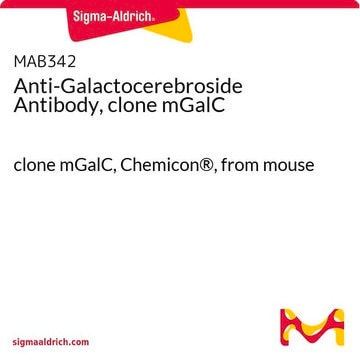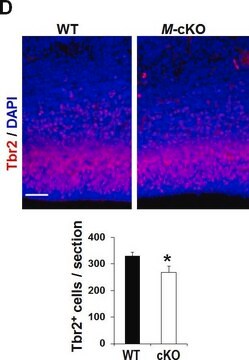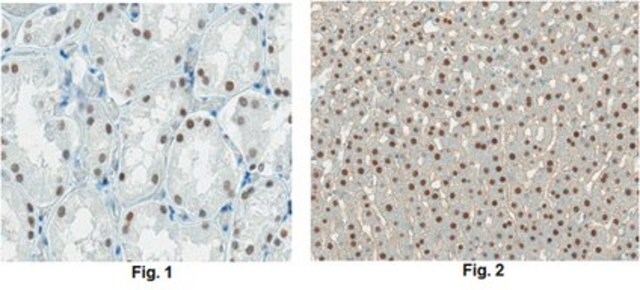FCABS352A4
Milli-Mark® Anti-Nanog-Alexa Fluor 488 Antibody, NT
Milli-Mark®, from rabbit
Szinonimák:
Homeobox transcription factor Nanog, Nanog homeobox
About This Item
Javasolt termékek
biológiai forrás
rabbit
Minőségi szint
konjugátum
ALEXA FLUOR™ 488
antitest forma
affinity isolated antibody
antitest terméktípus
primary antibodies
klón
polyclonal
faj reaktivitás
human
faj reaktivitás (homológia által előrejelzett)
mouse (based on 100% sequence homology), rat (based on 100% sequence homology)
gyártó/kereskedő neve
Milli-Mark®
technika/technikák
flow cytometry: suitable
izotípus
IgG
NCBI elérési szám
UniProt elérési szám
kiszállítva
wet ice
célzott transzláció utáni módosítás
unmodified
Géninformáció
human ... NANOG(79923)
Related Categories
Általános leírás
NANOG may be useful in the immunohistochemical diagnosis of tumors. NANOG is expressed in germ cells of the fetus and in some germ cell tumors of the gonads and central nervous system (CNS).
Egyediség
Immunogén
Alkalmazás
Stem Cell Research
Pluripotent & Early Differentiation
Minőség
Cél megnevezése
Fizikai forma
Tárolás és stabilitás
Analízis megjegyzés
2102 Ep cells
Jogi információk
Jogi nyilatkozat
Nem találja a megfelelő terméket?
Próbálja ki a Termékválasztó eszköz. eszközt
Tárolási osztály kódja
12 - Non Combustible Liquids
WGK
WGK 2
Lobbanási pont (F)
Not applicable
Lobbanási pont (C)
Not applicable
Analitikai tanúsítványok (COA)
Analitikai tanúsítványok (COA) keresése a termék sarzs-/tételszámának megadásával. A sarzs- és tételszámok a termék címkéjén találhatók, a „Lot” vagy „Batch” szavak után.
Már rendelkezik ezzel a termékkel?
Az Ön által nemrégiben megvásárolt termékekre vonatkozó dokumentumokat a Dokumentumtárban találja.
Tudóscsoportunk valamennyi kutatási területen rendelkezik tapasztalattal, beleértve az élettudományt, az anyagtudományt, a kémiai szintézist, a kromatográfiát, az analitikát és még sok más területet.
Lépjen kapcsolatba a szaktanácsadással








